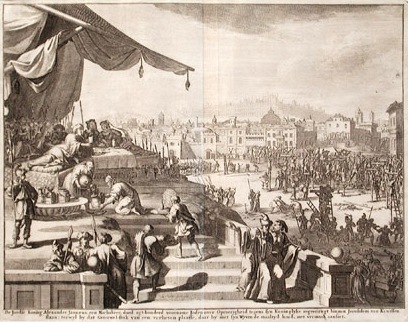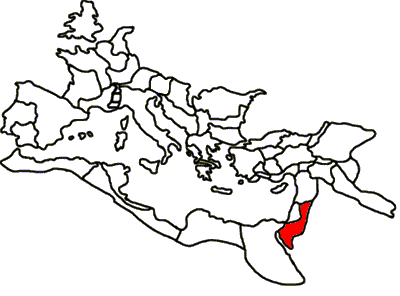|
Aryeh Kasher
Aryeh Kasher ( he, אריה כשר; 1935 – October 26, 2011) was an Israeli academic and writer. He was a professor at Tel Aviv University and winner of the 1990 Bialik Prize for Hebrew literature. His life and his research activity Kasher grew up in Kfar Vitkin, where he graduated from elementary school and high school. In his youth he wrote the radio feuilleton "Hilik Haviv" with his childhood friends and classmates Gad Yaacobi (later a government minister and member of the Knesset) and Micha Gisser (later professor of economics at the University of New Mexico in Albuquerque, New Mexico). In the Israeli army, he served at the Nahal. He began his history teaching in Emek Hefer regional school in the early 1960s. He received a MA from Tel Aviv University—the subject of his thesis, completed in 1966, was history background and messianism in Assumption of Moses. Kasher received his PhD in Jewish studies from Tel Aviv University in 1973. The dissertation subject was "The juris ... [...More Info...] [...Related Items...] OR: [Wikipedia] [Google] [Baidu] |
Professor
Professor (commonly abbreviated as Prof.) is an Academy, academic rank at university, universities and other post-secondary education and research institutions in most countries. Literally, ''professor'' derives from Latin as a "person who professes". Professors are usually experts in their field and teachers of the highest rank. In most systems of List of academic ranks, academic ranks, "professor" as an unqualified title refers only to the most senior academic position, sometimes informally known as "full professor". In some countries and institutions, the word "professor" is also used in titles of lower ranks such as associate professor and assistant professor; this is particularly the case in the United States, where the unqualified word is also used colloquially to refer to associate and assistant professors as well. This usage would be considered incorrect among other academic communities. However, the otherwise unqualified title "Professor" designated with a capital let ... [...More Info...] [...Related Items...] OR: [Wikipedia] [Google] [Baidu] |
Second Temple
The Second Temple (, , ), later known as Herod's Temple, was the reconstructed Temple in Jerusalem between and 70 CE. It replaced Solomon's Temple, which had been built at the same location in the United Kingdom of Israel before being inherited by the Kingdom of Judah in and then destroyed by the Neo-Babylonian Empire during the Siege of Jerusalem (587 BC), Babylonian siege of Jerusalem in . Construction on the Second Temple began some time after the Neo-Babylonian Empire was conquered by the Achaemenid Empire, Achaemenid Persian Empire; it followed a proclamation by Persian king Cyrus the Great (see Edict of Cyrus) that ended the Babylonian captivity and initiated the return to Zion. In Jewish history, the Second Temple's completion in Yehud (Persian province), Persian Judah marks the beginning of the Second Temple period. According to the Bible, the Second Temple was originally a relatively modest structure built by Jews who had returned from exile in Babylon under the author ... [...More Info...] [...Related Items...] OR: [Wikipedia] [Google] [Baidu] |
Canaan
Canaan (; Phoenician: 𐤊𐤍𐤏𐤍 – ; he, כְּנַעַן – , in pausa – ; grc-bib, Χανααν – ;The current scholarly edition of the Greek Old Testament spells the word without any accents, cf. Septuaginta : id est Vetus Testamentum graece iuxta LXX interpretes. 2. ed. / recogn. et emendavit Robert Hanhart. Stuttgart : Dt. Bibelges., 2006 . However, in modern Greek the accentuation is , while the current (28th) scholarly edition of the New Testament has . ar, كَنْعَانُ – ) was a Semitic-speaking civilization and region in the Ancient Near East during the late 2nd millennium BC. Canaan had significant geopolitical importance in the Late Bronze Age Amarna Period (14th century BC) as the area where the spheres of interest of the Egyptian, Hittite, Mitanni and Assyrian Empires converged or overlapped. Much of present-day knowledge about Canaan stems from archaeological excavation in this area at sites such as Tel Hazor, Tel Megiddo, En Esur ... [...More Info...] [...Related Items...] OR: [Wikipedia] [Google] [Baidu] |
Alexander The Great
Alexander III of Macedon ( grc, wikt:Ἀλέξανδρος, Ἀλέξανδρος, Alexandros; 20/21 July 356 BC – 10/11 June 323 BC), commonly known as Alexander the Great, was a king of the Ancient Greece, ancient Greek kingdom of Macedonia (ancient kingdom), Macedon. He succeeded his father Philip II of Macedon, Philip II to the throne in 336 BC at the age of 20, and spent most of his ruling years conducting a lengthy military campaign throughout Western Asia and ancient Egypt, Egypt. By the age of thirty, he had created one of the List of largest empires, largest empires in history, stretching from Greece to northwestern Historical India, India. He was undefeated in battle and is widely considered to be one of history's greatest and most successful military commanders. Until the age of 16, Alexander was tutored by Aristotle. In 335 BC, shortly after his assumption of kingship over Macedon, he Alexander's Balkan campaign, campaigned in the Balkans and reasserted control ... [...More Info...] [...Related Items...] OR: [Wikipedia] [Google] [Baidu] |
Josephus
Flavius Josephus (; grc-gre, Ἰώσηπος, ; 37 – 100) was a first-century Romano-Jewish historian and military leader, best known for ''The Jewish War'', who was born in Jerusalem—then part of Roman Judea—to a father of priestly descent and a mother who claimed royal ancestry. He initially fought against the Romans during the First Jewish–Roman War as head of Jewish forces in Galilee, until surrendering in 67 AD to Roman forces led by Vespasian after the six-week siege of Yodfat. Josephus claimed the Jewish Messianic prophecies that initiated the First Jewish–Roman War made reference to Vespasian becoming Emperor of Rome. In response, Vespasian decided to keep Josephus as a slave and presumably interpreter. After Vespasian became Emperor in 69 AD, he granted Josephus his freedom, at which time Josephus assumed the emperor's family name of Flavius.Simon Claude Mimouni, ''Le Judaïsme ancien du VIe siècle avant notre ère au IIIe siècle de notre ère : Des ... [...More Info...] [...Related Items...] OR: [Wikipedia] [Google] [Baidu] |
Alexander Jannaeus
Alexander Jannaeus ( grc-gre, Ἀλέξανδρος Ἰανναῖος ; he, ''Yannaʾy''; born Jonathan ) was the second king of the Hasmonean dynasty, who ruled over an expanding kingdom of Judea from 103 to 76 BCE. A son of John Hyrcanus, he inherited the throne from his brother Aristobulus I, and married his brother's widow, Queen Salome Alexandra. From his conquests to expand the kingdom to a bloody civil war, Alexander's reign has been generalised as cruel and oppressive with never-ending conflict. The major historical sources of Alexander's life are Josephus's '' Antiquities of the Jews'' and ''The Jewish War''. The kingdom of Alexander Jannaeus was the largest and strongest known Jewish State outside of biblical sources, having conquered most of Palestine's Mediterranean coastline and regions surrounding the Jordan River. Alexander also had many of his subjects killed for their disapproval of his handling of state affairs. Due to his territorial expansion and interac ... [...More Info...] [...Related Items...] OR: [Wikipedia] [Google] [Baidu] |
Nabataeans
The Nabataeans or Nabateans (; Nabataean Aramaic: , , vocalized as ; Arabic language, Arabic: , , singular , ; compare grc, Ναβαταῖος, translit=Nabataîos; la, Nabataeus) were an ancient Arab people who inhabited northern Arabian Peninsula, Arabia and the southern Levant. Their settlements—most prominently the assumed capital city of Petra, Raqmu (present-day Petra, Jordan)—gave the name ''Nabatene'' ( grc, Ναβατηνή, translit=Nabatēnḗ) to the Arabian borderland that stretched from the Euphrates to the Red Sea. The Nabateans emerged as a distinct civilization and political entity between the 4th and 2nd centuries BCE,Taylor, Jane (2001). ''Petra and the Lost Kingdom of the Nabataeans''. London: I.B.Tauris. pp. 14, 17, 30, 31. . Retrieved 8 July 2016. with Nabataean Kingdom, their kingdom centered around a loosely controlled trading network that brought considerable wealth and influence across the ancient world. Described as fiercely independent by cont ... [...More Info...] [...Related Items...] OR: [Wikipedia] [Google] [Baidu] |
Jerusalem
Jerusalem (; he, יְרוּשָׁלַיִם ; ar, القُدس ) (combining the Biblical and common usage Arabic names); grc, Ἱερουσαλήμ/Ἰεροσόλυμα, Hierousalḗm/Hierosóluma; hy, Երուսաղեմ, Erusałēm. is a city in Western Asia. Situated on a plateau in the Judaean Mountains between the Mediterranean Sea, Mediterranean and the Dead Sea, it is one of the List of oldest continuously inhabited cities, oldest cities in the world and is considered to be a holy city for the three major Abrahamic religions: Judaism, Christianity, and Islam. Both Israelis and Palestinians claim Jerusalem as their Capital city, capital, as Israel maintains its primary governmental institutions there and the State of Palestine ultimately foresees it as its seat of power. Because of this dispute, Status of Jerusalem, neither claim is widely recognized internationally. Throughout History of Jerusalem, its long history, Jerusalem has been destroyed at least twice, Sie ... [...More Info...] [...Related Items...] OR: [Wikipedia] [Google] [Baidu] |
Babylon
''Bābili(m)'' * sux, 𒆍𒀭𒊏𒆠 * arc, 𐡁𐡁𐡋 ''Bāḇel'' * syc, ܒܒܠ ''Bāḇel'' * grc-gre, Βαβυλών ''Babylṓn'' * he, בָּבֶל ''Bāvel'' * peo, 𐎲𐎠𐎲𐎡𐎽𐎢 ''Bābiru'' * elx, 𒀸𒁀𒉿𒇷 ''Babili'' *Kassite: ''Karanduniash'', ''Karduniash'' , image = Street in Babylon.jpg , image_size=250px , alt = A partial view of the ruins of Babylon , caption = A partial view of the ruins of Babylon , map_type = Near East#West Asia#Iraq , relief = yes , map_alt = Babylon lies in the center of Iraq , coordinates = , location = Hillah, Babil Governorate, Iraq , region = Mesopotamia , type = Settlement , part_of = Babylonia , length = , width = , area = , height = , builder = , material = , built = , abandoned = , epochs = , cultures = Sumerian, Akkadian, Amorite, Kassite, Assyrian, Chaldean, Achaemenid, Hellenistic, Parthian, Sasanian, Muslim , dependency_of = , occupants = , event = , excavations = , archaeologists = Hormuzd Rassam, Robe ... [...More Info...] [...Related Items...] OR: [Wikipedia] [Google] [Baidu] |
Bible
The Bible (from Koine Greek , , 'the books') is a collection of religious texts or scriptures that are held to be sacred in Christianity, Judaism, Samaritanism, and many other religions. The Bible is an anthologya compilation of texts of a variety of forms originally written in Hebrew, Aramaic, and Koine Greek. These texts include instructions, stories, poetry, and prophecies, among other genres. The collection of materials that are accepted as part of the Bible by a particular religious tradition or community is called a biblical canon. Believers in the Bible generally consider it to be a product of divine inspiration, but the way they understand what that means and interpret the text can vary. The religious texts were compiled by different religious communities into various official collections. The earliest contained the first five books of the Bible. It is called the Torah in Hebrew and the Pentateuch (meaning ''five books'') in Greek; the second oldest part was a coll ... [...More Info...] [...Related Items...] OR: [Wikipedia] [Google] [Baidu] |
Historiography
Historiography is the study of the methods of historians in developing history as an academic discipline, and by extension is any body of historical work on a particular subject. The historiography of a specific topic covers how historians have studied that topic using particular sources, techniques, and theoretical approaches. Scholars discuss historiography by topic—such as the historiography of the United Kingdom, that of WWII, the British Empire, early Islam, and China—and different approaches and genres, such as political history and social history. Beginning in the nineteenth century, with the development of academic history, there developed a body of historiographic literature. The extent to which historians are influenced by their own groups and loyalties—such as to their nation state—remains a debated question. In the ancient world, chronological annals were produced in civilizations such as ancient Egypt and Mesopotamia. However, the discipline of his ... [...More Info...] [...Related Items...] OR: [Wikipedia] [Google] [Baidu] |








.jpg)
